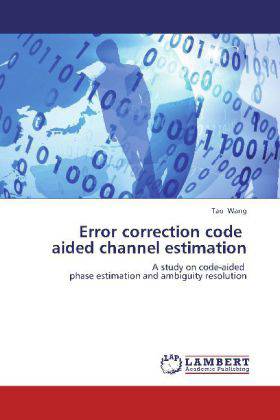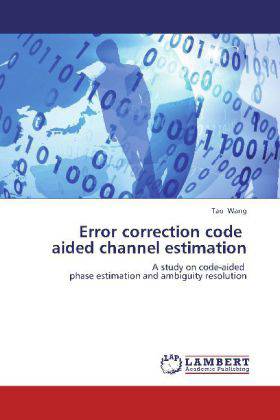
- Afhalen na 1 uur in een winkel met voorraad
- Gratis thuislevering in België vanaf € 30
- Ruim aanbod met 7 miljoen producten
- Afhalen na 1 uur in een winkel met voorraad
- Gratis thuislevering in België vanaf € 30
- Ruim aanbod met 7 miljoen producten
Zoeken
Error correction code aided channel estimation
A study on code-aided phase estimation and ambiguity resolution
Tao Wang
Paperback | Engels
€ 48,45
+ 96 punten
Omschrijving
This monograph sheds some light on error correction code aided channel estimation, by focusing on code-aided phase estimation and ambiguity resolution (PEAR) algorithms. In particular, these algorithms exploit both pilot and coded-data symbols collected at a receiver for PEAR. Specifically, extensions are made to previous works, by studying the impact of pilot insertion on the Cramér-Rao bound (CRB) and the performance of PEAR algorithms, provided that the spectrum efficiency and the total energy consumption per bit to noise ratio keep invariant. The CRB for phase estimation is first derived. The general expectation-maximization (EM) method is then particularized for deriving an EM-based phase estimator. The convergence behavior of this estimator is investigated as well. After that, the PEAR algorithms reported in the literature are introduced, and an alternative method with a reduced complexity is proposed. Finally, a whole receiver is represented by one factor graph, and a phase estimation method is derived based on the sum-product algorithm (SPA). Extensive simulations are made to evaluate the CRB and the performance of the proposed algorithms.
Specificaties
Betrokkenen
- Auteur(s):
- Uitgeverij:
Inhoud
- Aantal bladzijden:
- 92
- Taal:
- Engels
Eigenschappen
- Productcode (EAN):
- 9783659266188
- Uitvoering:
- Paperback
- Afmetingen:
- 150 mm x 220 mm

Alleen bij Standaard Boekhandel
+ 96 punten op je klantenkaart van Standaard Boekhandel
Beoordelingen
We publiceren alleen reviews die voldoen aan de voorwaarden voor reviews. Bekijk onze voorwaarden voor reviews.











